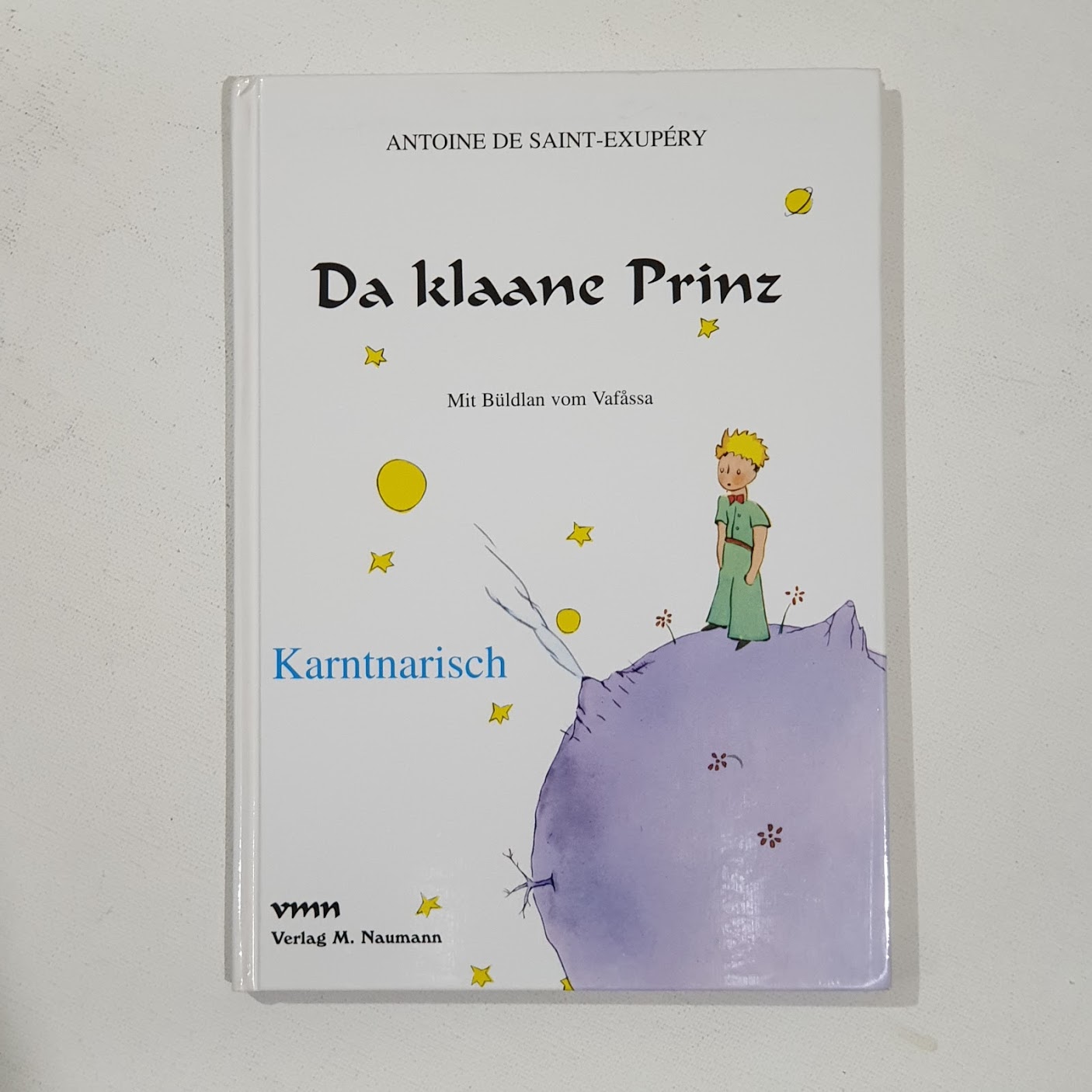
Da Klaane Prinz – in Carinthian dialect of Austro-Bavarian German.
The term Carinthian dialect refers to the variety of Southern Bavarian dialects spoken in the Austrian state of Kärnten (Carinthia). It is part of the larger group of Bavarian dialects within the Upper German branch of the Germanic language family. The Carinthian dialect is characterized by its unique linguistic features, which distinguish it from Standard German as well as from other Bavarian dialects spoken in Austria, Bavaria (Germany), and South Tyrol (Italy).
The Carinthian dialect exhibits specific phonetic characteristics, such as distinctive vowel and consonant pronunciations that differ from Standard German. Like other Bavarian dialects, it may feature vowel length distinctions and certain diphthongs unique to the dialect. Carinthian Bavarian, like other Southern Bavarian dialects, has its own grammatical rules that may diverge from Standard German. This includes variations in verb conjugation, noun declension, and the use of articles. The dialect contains a rich set of vocabulary that is specific to Carinthia, including words and expressions that reflect the local culture, history, and environment. Many of these terms have no direct equivalents in Standard German.
The dialect is an important marker of regional identity and cultural heritage in Carinthia. It is primarily a spoken language used in everyday communication among locals. Its use is particularly strong in rural areas and among older generations. In urban areas and formal settings, Standard German predominates, although the dialect is still present in informal contexts.


